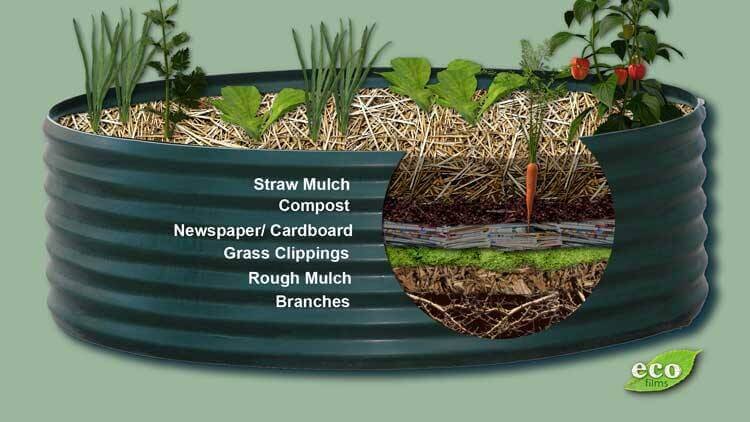Create a winter veggie garden
Becoming more self sufficient and less reliant on the supermarket is becoming more important for people with the life changes that the Corona Virus has brought upon us.
One of the simplest ways we can reduce our reliance on the supermarket, as well as help our food budget, is creating a vegetable garden at home!
Image via HERE
Now is a good time to plant winter vegetables including; cabbages, cauliflower, broccoli, brussel sprouts, kale, spinach, silverbeet and broccoli.
Here are some things to consider when establishing a new veggie garden.
Position
Go outside and take note of the sunny and shady areas of your garden throughout the day. Ideally your garden will get at least 6 hours of sun per day.
You also want your veggies to be accessible to your house... think about when it's dark in winter and you need to pick some of your lovely veg for a last minute dinner recipe. You don't want to be trekking in the dark to pick your harvest.
Size and layout
Raised garden beds are the best way to grow vegetables. They help reduce weeds, help with soil drainage, save your back by not having to bend right over and serve as a barrier for pests such as snails and slugs. We love Tanks A Lot. They make beautiful steal raised garden beds.
Don't go too big to start with. Start with one garden bed and as your confidence grows add more each season.
Need help creating a flat pad for your garden beds to placed on? The Little Digger or Bobcat can clear, level and compact for the perfect garden area. We can also help with delivering materials, building retaining walls or raise garden beds, adding paths or stepping stones for easy access.
Image via HERE
Plant choice
What do you eat most of? There's not point in having lots of kale if you can't actually stand the stuff. So take into consideration the tastes of you and your family when selecting plants or seeds from the nursery.
Leeks are nice in soups and stews in winter etc.
Potato and Leek Soup Recipe via HERE
Add herbs like rosemary, chives and thyme for a winter garden. These herbs are wonderful in wintery soups and stews or with vegetables
Preparation
Bring in good quality soil or potting mix. If you have a compost then load up your veggie garden beds with all that beautiful organic matter. (If you want to splash out, Central Landscape Supplies has beautiful organic compost mix). Certain veggies will need to be grown on a stake or trellis. So consider the layout when you are planting. For example place tomatoes at the back and smaller, lower plants at the front so you can get to your tomatoes when it's time to harvest.
You can buy a pre-made trellis from the hardware store. Otherwise get some wooden stakes and twine or hessian strips to tie your plants. If you have a wall or fence you could also grow your plants using wire run up or across the wall.
Once you have planted your veggies, you will want to put a nice layer of mulch down to protect your plants from frost and keep the weeds at bay. Why not hire our heavy duty Wood Chipper and create your own mulch onsite whilst tidying up any fallen or pruned trees!
If you don't have the space for a large veggie patch, why not try a vertical garden with herbs and leafy greens? What about pots! Quite a lot of fruits, veg and herbs can be grown in pots. The benefit of pots is that you can move the plants into sunny positions, they don't take up a lot of room and can even be grown on balconies or small courtyards.
Image via HERE
Pick to produce
The more you pick, the more you'll produce. For plants such as tomatoes you can keep a crop going by regularly harvesting.
Keep a record
Create a gardening journal to record the plant varieties you have planted and when. Include any information on the growing advice and also when things die off or go to seed. That way you can work out the cycle of planting, harvesting and what does or doesn't work in your garden so each year, your garden can be more successful.
Pests
Snails and slugs are a big pain when your perfect fruit or veg start getting munched! Get some snail bate pellets to sprinkle around your garden.
You might need to put netting or fencing around your garden to keep birds and possums away. So consider this when planning your veggie garden layout.
There are so many rewards to growing your own produce. From personal satisfaction, self reliance, money savings, extra taste and quality, convenience to the environmental benefits.
If you need a hand then give our team a call. We can help with building, delivery and general advice.
Happy planting!




